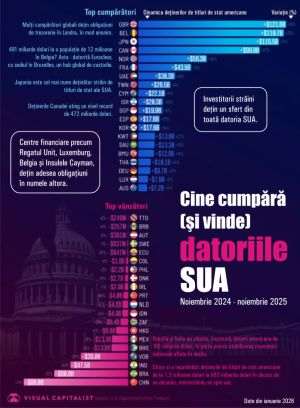The National Library Commission is sounding a severe alarm: the national library network is collapsing. The institution is calling on the authorities to treat libraries as "critical infrastructure of public interest" and to urgently adopt a national recovery strategy. The message comes at a time of alarming regression of the Romanian library network, marked by institutional losses, documentary degradation and serious inequalities between urban and rural areas.
• A system in disintegration: massive losses in just four years
Between 2020 and 2023, Romania lost 566 libraries, according to official data. The most affected were the municipal public libraries, which were reduced by 171 units. Many of these closures were made without respecting the legal provisions, in contradiction with Law no. 334/2002 on libraries, which prohibits their closure in the absence of a major administrative reconfiguration. These practices endanger not only the local cultural heritage, but also the constitutional right of citizens to access culture and education.
• Unequal access and risks of social exclusion
The situation is even more serious in rural areas. Although the majority of libraries (60.6%) are located in rural localities, they hold only 21.8% of the total book collection. This disproportion reflects not only a geographical imbalance, but also a systemic problem of resource allocation. In many municipalities, libraries survive only formally - without qualified staff, without new acquisitions, without functional services. In their absence, local communities are deprived of a vital tool for continuing education, socialization, inclusion and cultural development.
• Documentary funds in decline, digitization non-existent
Data for 2023 indicate a decrease in the volume of collections, which reached 153.3 million units. The pace of renewal is considered extremely slow, and digitization - practically absent in rural libraries. While there is a concentration of electronic collections in university centers, rural public libraries acquired on average "under a digital title" new in 2023. This reality amplifies digital exclusion and the marginalization of already disadvantaged communities.
• Aging human resources, without generational renewal
Currently, over 52% of employees in the library system are between 50 and 64 years old, while only 0.7% are young people under 25 years old. This figure reflects a deep crisis in attracting new generations to the librarianship profession - a problem related to both salaries and the general image of the profession in society.
• A system on the brink, but with potential for revitalization
Despite the systemic setback, the National Library Commission reports a slight increase in the number of active users and volumes borrowed in 2023. However, these positive signals risk remaining ephemeral if they are not accompanied by consistent reforms and long-term strategic investments.
The Commission calls for urgent and coherent intervention: consistent budget allocations, legislative reforms, investments in digitization and a realistic human resources policy. Above all, it demands the recognition of libraries as critical infrastructure for democracy, education and social cohesion. Without these measures, experts warn, Romania risks losing not only cultural institutions, but also the chance for sustainable, equitable and inclusive development. The library, in its modern form, remains a bastion of free education. But this bastion is collapsing, silently.
















































